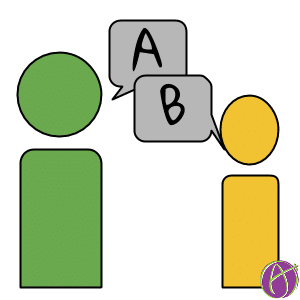The grade or points a student earns on an assignment is influenced by the person assessing it. Given the same assignment different teachers would value things differently. One teacher might give the assignment an A another a D. Some of the reasons could be ambiguity of the directions, misinterpretation of the directions, student creativity with the assignment, teacher expertise in certain areas, teacher fatigue in grading, and more.
Student Voice
Why should the student not have a voice in their own assessment? One of my favorite things is I have students present their work to me at the end of the semester. I have a holistic rubric that says what the student needs to do to earn an A, B, C, or D in the class. They assess themselves against the rubric and then provide evidence to support that. We then have a conversation around the grade they think they earned and if I agree. Usually we do agree. In the cases that there is a disagreement I am able to specifically tell them where they fell short and try to give them an opportunity to defend themselves or to make corrections.
So many times I have looked at student work and thought “this is okay, not super awesome.” However, when the students explained their work, what they learned and how they were applying it it brought so much more context to the students efforts and knowledge. Sometimes what a student knows does not always come fully across in their work. I have had very good luck in having students self assess and use that as the starting point. Sure there a few students who undervalue their work or overvalue their efforts, I am on the lookout for those students to help them to more accurately assess themselves. When students have a voice in their assessment the “sting” of a 98 is less likely to happen. When a grade is “given” to a student they can feel powerless when that does not seem right to them. This feeling can translate to less motivation in the class, giving up or just frustration. I love hearing from my students and value their input to help more accurately assess what they know.









